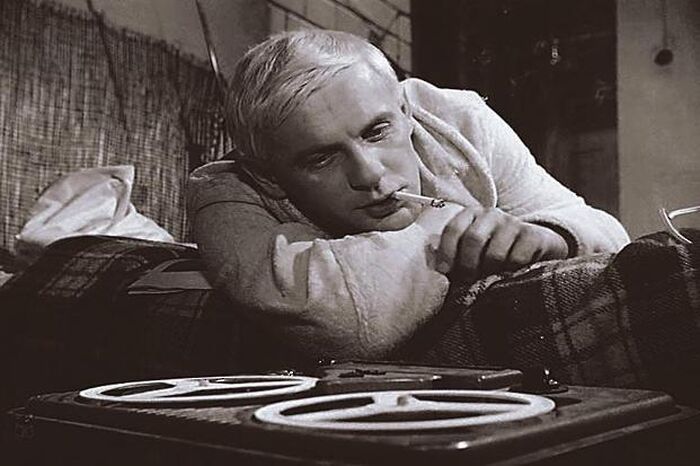Review: No Happy End in sight
Uninspired by Michael Haneke’s latest offering, Hugh Oxlade places it firmly amongst the lesser works of the director’s filmography

One of the subplots of Happy End, about Isabelle Huppert’s feckless son, is moribund from the outset. One of the scenes dedicated to it ruins the momentum which the other narrative strands had just about managed to establish. All interest was sapped from the cases of the girl who poisoned her mother, her father and his lurid social media exchanges, the addled patriarch seeking to end his life, and Toby Jones, whose presence added nothing dramatically whatsoever, but whose incongruity at least had some novelty value.
“Irksome lack of narrative direction”
There was certainly promise. Establishing a character through their social media correspondence was a fruitful move, the morbidity of the very opening scenes having proved utterly captivating. A shot in which Jean-Louis Trintignant’s character turned to resume a conversation with his granddaughter, still baffled by her presence despite an adequate explanation having been provided, was garnished with equally healthy dollops of comedy and tragedy. A visually sumptuous scene at a beach, while the characters still held some intrigue, was worthy of a respectful nod. The considerable skill of Happy End’s eminent director was not in the end sufficient to compensate for its irksome lack of narrative direction.
Many things happen in Happy End, but they happen very slowly, and seemingly at random. The father who sends filthy Facebook messages shows an estate agent around his old house; his daughter watches a Youtube video; Toby Jones arranges a loan for Isabelle Huppert’s firm; a character we have never seen before is bitten by a dog; Isabelle Huppert’s son interrupts an engagement party, bringing with him some refugees from the Calais Jungle. The last was presumably some sort of statement, but one without any sort of emotional resonance, while many other scenes were clearly inserted merely to provide information deliberately omitted from previous scenes.
Moments of revelation can be wonderful things, but in this case they came in scenes so superfluous that the film’s structure was critically jeopardised. The characters were simply not developed effectively because too much of too little consequence was happening to too many of them.
It may well have been the case that Herr Haneke was aiming for that delicious mixture of the absurd and the meaningful occasionally apparent at the film’s beginning. If this was the case, he missed by some margin, ending up in neither camp and instead producing a film which for much of its second half, and some of the first, is simply boring.
One desperately wants to be enchanted by a scene in which Jean-Louis Trintignant’s elderly, wheelchair-bound millionaire makes a request of a gang of hoodie-sporting ethnic minority youths. Haneke’s decision to muffle the dialogue of this scene, alas, deprived it of one potential source of humour, and it was simply not staged or paced deftly enough to amuse as a silent skit.
A special place in the infernal regions ought, meanwhile, to be reserved for the ‘video essay’ crudely stapled to the beginning of the film at my viewing at the Arts Picturehouse. This awesomely otiose and shoddily constructed attempt at an analysis of Michael Haneke’s oeuvre was about as much fun as a live frog dissection, yet less interesting to the order of several powers of ten
 News / Pembroke to convert listed office building into accom9 December 2025
News / Pembroke to convert listed office building into accom9 December 2025 News / Gov declares £31m bus investment for Cambridge8 December 2025
News / Gov declares £31m bus investment for Cambridge8 December 2025 Features / Searching for community in queer Cambridge10 December 2025
Features / Searching for community in queer Cambridge10 December 2025 News / Uni redundancy consultation ‘falls short of legal duties’, unions say6 December 2025
News / Uni redundancy consultation ‘falls short of legal duties’, unions say6 December 2025 Lifestyle / Into the groove, out of the club9 December 2025
Lifestyle / Into the groove, out of the club9 December 2025










